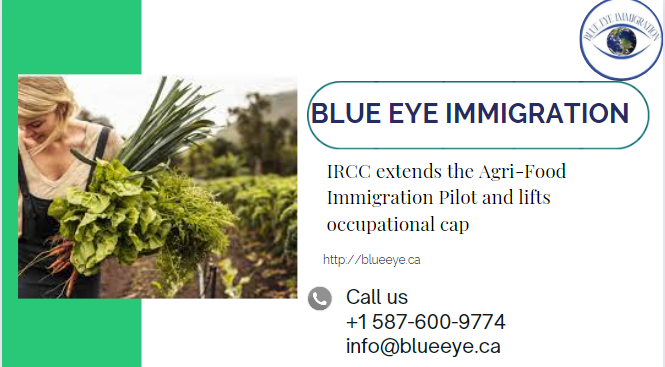IRCC has announced that it is extending the Agri-Food Immigration pilot and lifting annual occupational caps for program participants.
Today Immigration Minister Sean Fraser said that the Agri-Food Pilot Program will now run until May 14, 2025. The pilot was established to help facilitate the transition of experienced workers in agricultural and food industries to permanent residence in Canada.
The Minister also announced the lifting of the annual occupational caps. Immigration, Refugees and Citizenship Canada (IRCC) says removing these limits will provide an opportunity for more eligible candidates to apply. IRCC will also be making additional changes by the end of the year. The department will introduce new changes to the pilot in stages, such as:
- Increasing open work permit access to family members of the pilot program participants regardless of the candidates job skill level;
- Giving unions the ability to vouch for a candidate’s work experience as an alternative to employer reference letters;
- Applicants residing in Canada will be given the option to either meet the job offer requirement, which includes the median wage requirement for the offer or they may meet the education requirement (including an educational credential assessment verification); and
- The pilot will start accepting work experience obtained under an open work permit for vulnerable workers. IRCC says this will give more workers an opportunity to qualify.
Canada’s Agri-Food Immigration Pilot was launched in 2020 with the intention of helping to reduce labour shortages in meat processing, mushroom and greenhouse production, and livestock-raising industries.
When it was announced IRCC said it would admit up to 2,750 principal applicants plus their family members annually for the following three years.
The application deadline for the pilot was set to expire on May 14, 2023.
Recent job vacancy data from February 2023 shows there are more than 243,000 people in Canada employed in the Agriculture, Hunting, Fishing and Forestry sector and over 14,000 vacant jobs. The industry was hard-hit by the COVID-19 pandemic that caused plant closures, market fluctuations and supply chain delays.
What occupations are eligible for the program?
The occupations and industries eligible under the pilot include:
Meat product manufacturing;
- Retail butchers
- Industrial butchers
- Farm supervisors and specialized livestock workers
- Food processing labourers
Greenhouse, nursery and floriculture production, including mushroom production;
- Farm supervisors and specialized livestock workers
- General farm workers
- Harvesting labourers.
Animal production excluding aquaculture:
- Farm supervisors and specialized livestock workers
- General farm workers.
Candidate eligibility
Candidates for the program must also meet additional eligibility requirements such as:
- 12 months of full-time, non-seasonal Canadian work experience in the Temporary Foreign Worker Program in one of the eligible occupations;
- a Canadian Language Benchmark level 4 in English or French;
- the foreign equivalent of a high school level education or greater; and
- an indeterminate job offer for full-time, non-seasonal work in Canada, outside of Quebec, at or above the prevailing wage.
Meat processing sector
Employers in the meat processing sector who wish to use the pilot will be issued a two-year Labour Market Impact Assessment. The plan must outline the employer’s plan to support the temporary foreign worker in obtaining permanent residency.
IRCC says unionized meat processors require a letter of support from their union and non-unionized meat processors will have to meet additional requirements to ensure the labour market and migrant workers are protected.
